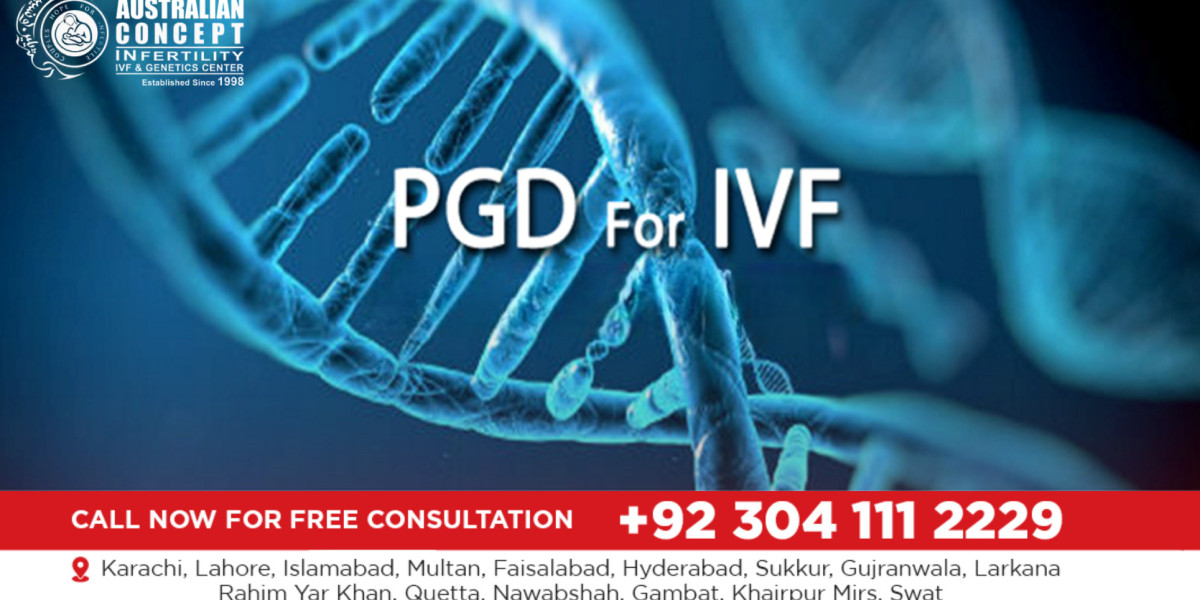Every couple dreams of having a healthy baby and, at times, may also wish to balance their family by choosing the gender of their next child. With advancements in reproductive technology, Preimplantation Genetic Diagnosis (PGD) has made this possible. PGD allows doctors to identify the gender and genetic health of embryos before they are implanted during an IVF cycle. But not every couple qualifies for this procedure. Let’s explore which couples are eligible for PGD gender selection, how it works, and what important factors to consider before choosing this option.
Understanding PGD Gender Selection
Preimplantation Genetic Diagnosis (PGD) is a specialized laboratory technique used alongside IVF. After eggs are fertilized with sperm in the lab, embryos begin to develop. On the third or fifth day, a few cells are taken from each embryo and examined to identify genetic disorders and determine gender.
This process ensures that only healthy embryos of the desired gender are transferred into the uterus, reducing the risk of genetic diseases and allowing family balancing in some cases.
How PGD Works During IVF
IVF Cycle Starts – The woman takes fertility medications to stimulate egg production.
Egg Retrieval – Mature eggs are collected from the ovaries.
Fertilization – Eggs are fertilized with sperm in the laboratory.
Embryo Biopsy – A small number of cells are extracted from developing embryos.
Genetic Testing – These cells are analyzed to detect chromosomal or genetic abnormalities and identify gender.
Embryo Transfer – A healthy embryo of the desired gender is transferred to the uterus for implantation.
This process is highly accurate and provides valuable genetic information about each embryo before pregnancy begins.
Couples Eligible for PGD Gender Selection
PGD gender selection is not suitable for everyone. It is typically recommended for specific medical or genetic reasons, as well as for couples seeking family balance under regulated conditions. Below are the main categories of eligible couples:
1. Couples with a History of Genetic Disorders
PGD was originally developed to prevent the transmission of serious genetic conditions. Couples who are carriers of X-linked diseases (like hemophilia or muscular dystrophy) are eligible because these disorders primarily affect male children. PGD helps ensure that only unaffected embryos are transferred, allowing parents to avoid passing on such conditions.
2. Couples with Recurrent Pregnancy Loss
Some couples experience repeated miscarriages due to chromosomal abnormalities in the embryo. PGD helps identify healthy embryos that have the correct number of chromosomes, increasing the chances of a successful pregnancy.
3. Couples with a Family History of Genetic or Chromosomal Conditions
When one or both partners have a known genetic mutation or a family history of conditions like cystic fibrosis, thalassemia, or Down syndrome, PGD becomes a critical part of their fertility plan. It helps ensure that only embryos without these abnormalities are selected for implantation.
4. Couples Who Have Undergone Multiple Failed IVF Cycles
Couples who have faced multiple IVF failures may qualify for PGD to identify embryos with the highest potential for success. In many cases, abnormal chromosomes can prevent implantation or cause early miscarriage, and PGD helps overcome that issue by ensuring only genetically normal embryos are used.
5. Couples Seeking Family Balancing
In some countries and fertility centers, PGD is offered to couples who already have one or more children of the same gender and wish to balance their family. For instance, a couple with two daughters may wish to have a son. However, such non-medical gender selection is allowed only in certain regions and under specific ethical guidelines.
6. Older Couples or Women of Advanced Maternal Age
As a woman’s age increases, so does the risk of chromosomal abnormalities in embryos. Women above 35 are often eligible for PGD because it helps identify healthy embryos, improving the success rates of IVF and reducing the risk of miscarriage or genetic conditions.
When PGD Is Not Recommended
While PGD can be beneficial, it’s not always the right choice. It is not recommended for:
Couples with unexplained infertility and no genetic risks.
Individuals who cannot produce enough viable embryos.
Cases where the ethical or legal framework of the country restricts gender selection.
Doctors typically recommend PGD only when it offers a clear medical or genetic advantage.
Ethical and Legal Considerations
The ethical and legal aspects of PGD vary widely from one country to another. In many regions, gender selection is restricted to medical reasons only for example, to avoid passing on genetic diseases linked to a specific gender.
In countries where family balancing is permitted, clinics must still follow strict ethical guidelines to ensure that PGD is used responsibly. It is essential to consult a licensed fertility specialist who can explain your options based on your country’s laws and your medical condition.
The Role of a Fertility Specialist
A IVF doctor plays a key role in determining whether PGD gender selection is suitable for you. The doctor evaluates your medical history, previous pregnancies, and family background before recommending the procedure. They also guide you through the IVF cycle, embryo testing, and transfer process, ensuring that you understand every step clearly.
Fertility specialists use PGD not just for gender selection but also to improve pregnancy outcomes and reduce genetic risks, making it a valuable tool in reproductive medicine.
Benefits of PGD Gender Selection
Detection of Genetic Disorders: Reduces the risk of passing hereditary diseases to your child.
Higher Pregnancy Success Rates: Ensures only healthy embryos are transferred, improving implantation chances.
Family Balancing: Allows couples to achieve their desired family structure under ethical guidelines.
Reduced Miscarriage Risk: Selecting chromosomally normal embryos minimizes early pregnancy loss.
Peace of Mind: Parents can feel confident knowing their baby is healthy and free from known genetic issues.
Risks and Limitations of PGD
Like any medical procedure, PGD also has some risks and limitations:
Cost: It adds to the total cost of IVF treatment in Lahore, making it more expensive.
Embryo Damage Risk: Although minimal, the biopsy may slightly affect embryo quality.
Emotional Stress: The waiting period for genetic results can be emotionally challenging.
Limited Number of Viable Embryos: Sometimes, few embryos are suitable for transfer after testing.
It’s important to discuss these factors with your fertility doctor before proceeding.
Preparing for PGD Gender Selection
If you’re considering PGD, preparation is essential. Here’s what couples should do before starting treatment:
Medical Evaluation: Both partners undergo fertility assessments to check overall health.
Genetic Counseling: A counselor explains genetic risks and helps you understand PGD outcomes.
Emotional Readiness: Psychological support can help you cope with stress during the process.
Legal Guidance: Make sure the procedure complies with local laws and ethical standards.
Emotional and Psychological Aspects
Infertility and genetic testing can be emotionally overwhelming. Couples often experience anxiety, stress, or guilt when faced with decisions about embryo selection. Counseling plays an important role in helping couples understand their feelings, manage expectations, and make informed decisions with confidence.
Remember, PGD is not just a scientific process it’s a deeply personal journey that involves emotional strength and trust between partners.
Success Rates of PGD Gender Selection
PGD offers a very high level of accuracy over 99% for gender identification and 95–98% for detecting genetic disorders. However, the overall success of achieving pregnancy still depends on factors like maternal age, embryo quality, and overall reproductive health.
Couples working with experienced fertility centers have higher chances of achieving both healthy pregnancies and family balance goals.
Conclusion
PGD gender selection is a remarkable advancement in reproductive medicine, giving couples the opportunity to ensure the health of their baby and, in some cases, choose their preferred gender. However, it’s not suitable for everyone. Eligibility depends on genetic history, medical conditions, age, and local regulations.
If you’re considering PGD, the first step is to consult a skilled IVF doctor who can assess your situation and recommend the most suitable approach. With the right guidance and support, you can take a confident step toward building a healthy and balanced family.








